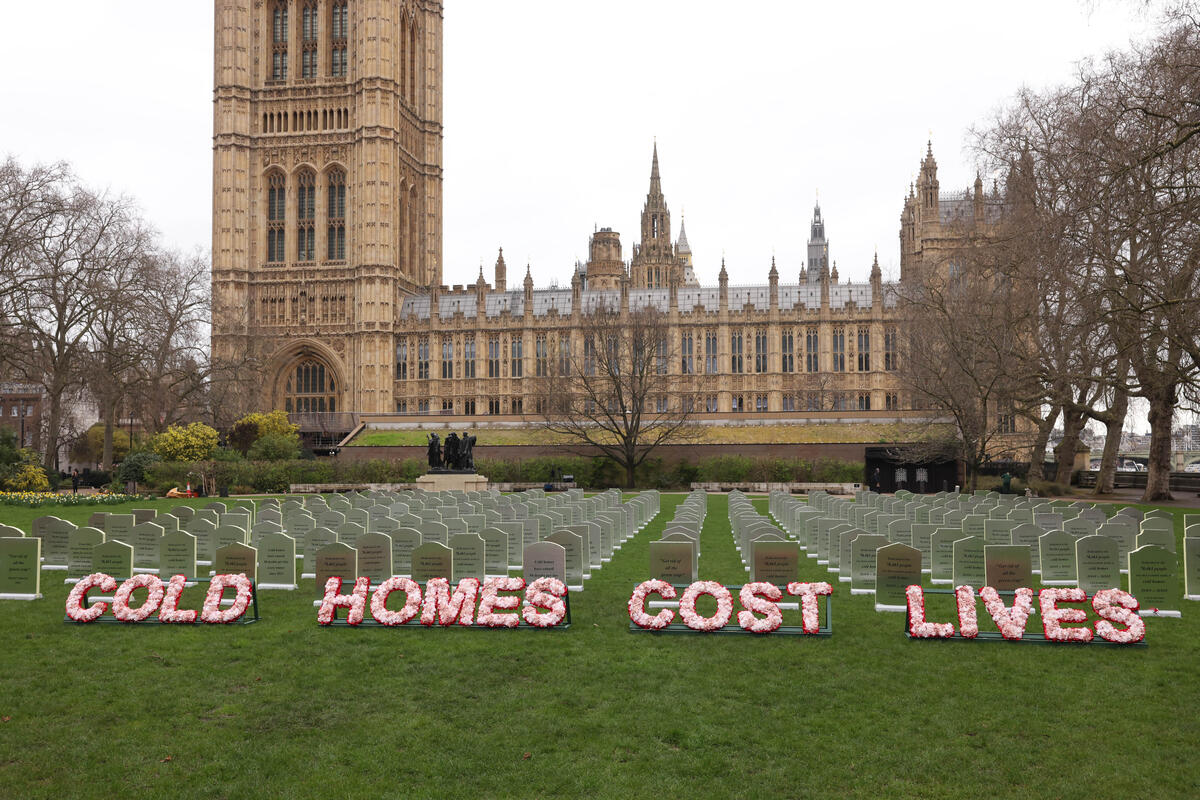Thousands of people dying every year over government failure to insulate homes, Greenpeace says
Greenpeace said successive governments have fueled a ‘silent public health crisis by slashing insulation funding’

Thousands of people are dying every year after the government’s failure to adequately insulate homes, new analysis from Greenpeace has claimed.
In figures published by the environmental group on Wednesday it said that around 58 people have died every day in cold homes in winter since David Cameron’s Conservative government decided to cut support for home insulation in 2013.
The slashed subsidies for loft and wall insulation resulted in installations plunging from 2.3 million in 2012 to just over 300,000 in 2013, according to the charity.
Paul Morozzo, Greenpeace UK’s fuel poverty campaigner, said: “Thousands of people are literally freezing to death in their own homes during winter. And not only have successive governments failed to prevent this needless and shocking loss of life but they have fuelled this silent public health crisis by slashing insulation funding and failing to deliver a proper scheme to upgrade our cold, damp, draughty homes.
“This persistent failure to protect lives in one of the easiest ways possible is also driving the rise in fuel poverty, the cost of living and climate crises - since well insulated homes cost less to heat and cut carbon emissions. Cold homes cost lives and we urgently need a government willing to invest at least £6 billion every year to end this national scandal once and for all.”
The UK has some of the least energy efficient housing stock in Europe which can mean that households on lower incomes struggle with high energy bills.
An estimated 13 per cent of households in England, 3.17 million people, were in fuel poverty last year – up from 10.3 per cent in 2018.
The Labour Party had promised to invest £6 billion a year that many environmental and anti-poverty charities, including Greenpeace, believe would go so way towards boosting the energy efficiency of the UK’s housing stock.
However they recently scaled back their plans for insulating homes by over 70 per cent, leading Greenpeace to urge the party to recommit to more funding for the policy in its upcoming manifesto.
To mark its new analysis, Greenpeace activists turned a Royal Park outside the Houses of Parliament into a cemetery using hundreds of headstones made from insulation boards.
Stuart Bretherton, from Fuel Poverty Action, said: “Countless avoidable deaths under this government prove that it was true then as it is now, green policies are a necessity to reducing poverty and driving improvements to social wellbeing.
“The next government must set its ambitions high in delivering safe, non-toxic, non-flammable insulation appropriate for our homes; installed by well trained workers.
“Repairing and retrofitting the UK’s housing stock could prevent further loss of life, create thousands of skilled jobs and vastly reduce energy wastage for households bringing down emissions and our bills.”
A government spokesperson said: “Everyone has the right to a warm, secure and decent home, and we expect landlords to meet our energy efficiency standards before letting properties.
“Almost half of all homes in England now have an EPC rating of C or above, up from just 14% in 2010.
“We have also allocated £20 billion for energy efficiency over this parliament and next, supporting insulation for around 500,000 homes.”
Subscribe to Independent Premium to bookmark this article
Want to bookmark your favourite articles and stories to read or reference later? Start your Independent Premium subscription today.

Join our commenting forum
Join thought-provoking conversations, follow other Independent readers and see their replies